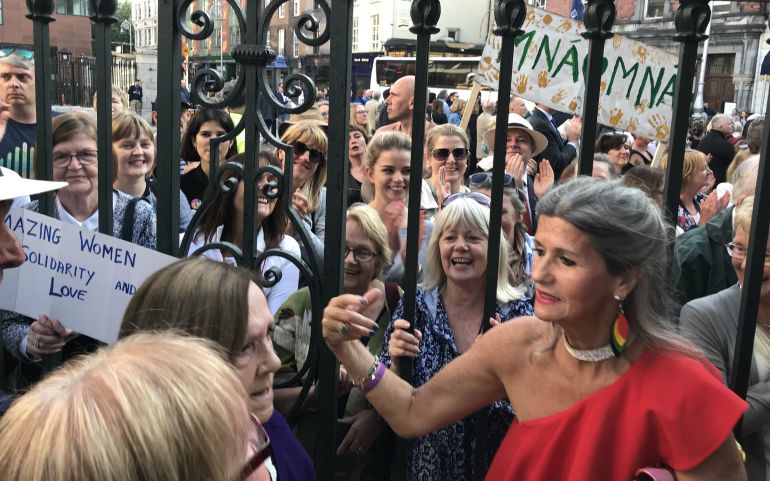
Gabrielle O'Gorman, in red, attends the Aug. 26 "Stand4Truth" demonstration in Dublin. O'Gorman, 73, spent six weeks at the Sean McDermott Street laundry before she was sent to the laundry run by the Good Shepherd Sisters in Limerick for two and a half years. (Provided photo)
Women who worked in Ireland's "Magdalene laundries" but were denied compensation under the state's Magdalene Restorative Justice program have won their long-running battle to have their applications reassessed. New legislation will ensure that payments to the women will be fast-tracked by the Irish state in an effort to make amends for the delay they have endured over their disputed compensation for their time working in the laundries. With many of the women now over 70 years of age, time is not on their side.
In 2018, the spotlight fell on the Magdalene laundries on three separate occasions. In June, state and civic society groups brought together 220 former Magdalenes as part of a healing journey required under the Magdalene Restorative Justice program, which included a presidential apology to the women. Then there was the papal apology from Pope Francis in August at the closing Mass of the World Meeting of Families. The year culminated with the government's decision to extend the redress program to those former Magdalenes incorrectly excluded from the original program.
The need to extend the redress program was highlighted in 2017 by the Irish Ombudsman, Peter Tyndall. In his report on the Magdalene Restorative Justice program, Tyndall highlighted that 15 of the complaints under investigation by his office concerned the Department of Justice's rejection of redress applications by women who had worked in one of the 12 institutions listed as Magdalene laundries in the 2013 "McAleese Report" because they had lived not in the laundry itself, but in a training center or industrial school in the same building or located on the same grounds as a Magdalene laundry. Some of the women took High Court actions to try to force the Department of Justice to recognise that they were entitled to be part of the redress program.




